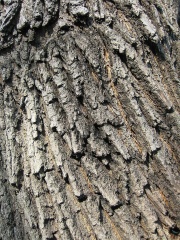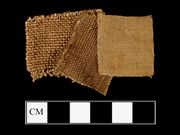Difference between revisions of "Maple bark"
Jump to navigation
Jump to search
| Line 1: | Line 1: | ||
| − | [[File:Norway Maple2_bark_AA.jpg|thumb|Norway maple | + | [[File:Norway Maple2_bark_AA.jpg|thumb|Norway maple''Acer platanoides'']] |
| − | |||
| − | ''Acer platanoides'']] | ||
== Description == | == Description == | ||
| Line 12: | Line 10: | ||
Norway maple trees (''Acer platanoides''); silver maple (''Acer saccharinum)''; écorce d'érable (Fr.); | Norway maple trees (''Acer platanoides''); silver maple (''Acer saccharinum)''; écorce d'érable (Fr.); | ||
| − | == | + | ==Resources and Citations== |
* R.J. Adrosko, ''Natural Dyes in the United States'', Smithsonian Institution Press, Washington, DC, 1968 | * R.J. Adrosko, ''Natural Dyes in the United States'', Smithsonian Institution Press, Washington, DC, 1968 | ||
Latest revision as of 10:51, 17 October 2022
Description
Bark from Norway maple trees (Acer platanoides) and silver maple (Acer saccharinum). Red maple (Acer rubrum) bark gives a pale gray (Cotton) to rose-tan (Wool) color using an alum Mordant. Changing mordants to copper sulfate produces a dark gray while chrome produces and beige color. Silver maple bark gives a tan color with Alum and a black with Copper. The drab colors from the maple bark dyes have good color fastness.
Synonyms and Related Terms
Norway maple trees (Acer platanoides); silver maple (Acer saccharinum); écorce d'érable (Fr.);
Resources and Citations
- R.J. Adrosko, Natural Dyes in the United States, Smithsonian Institution Press, Washington, DC, 1968
- John and Margaret Cannon, Dye Plants and Dyeing, Herbert Press, London, 1994
- The American Heritage Dictionary or Encarta, via Microsoft Bookshelf 98, Microsoft Corp., 1998

